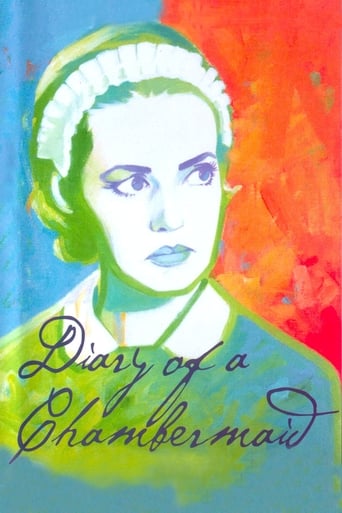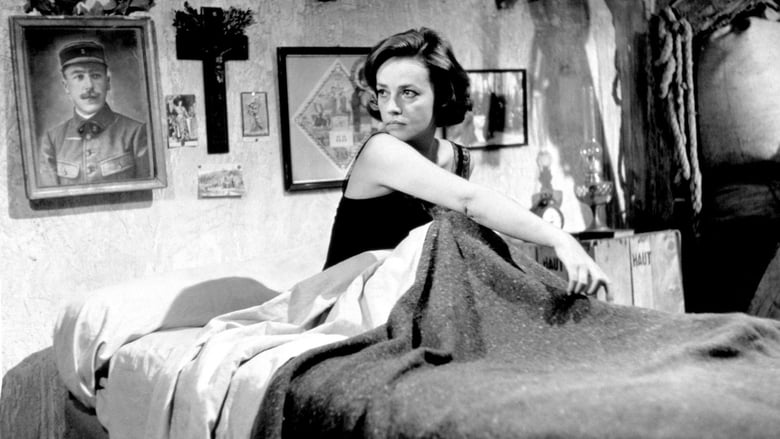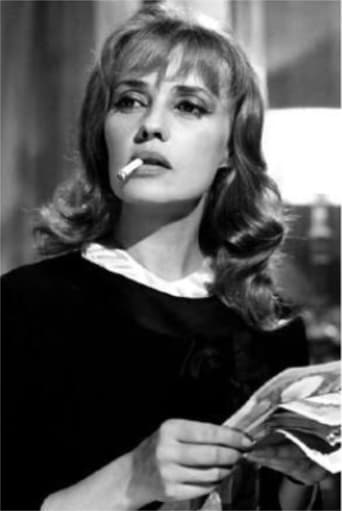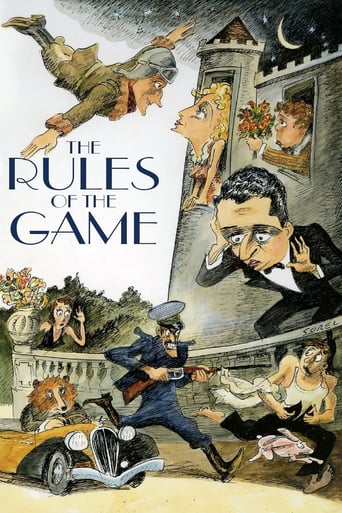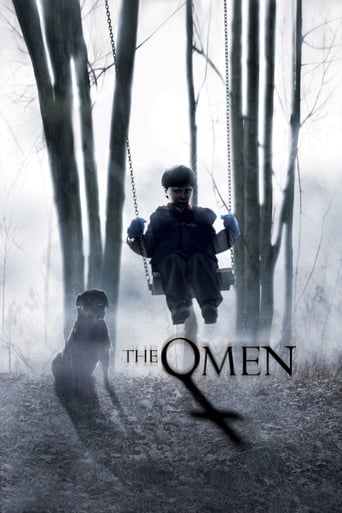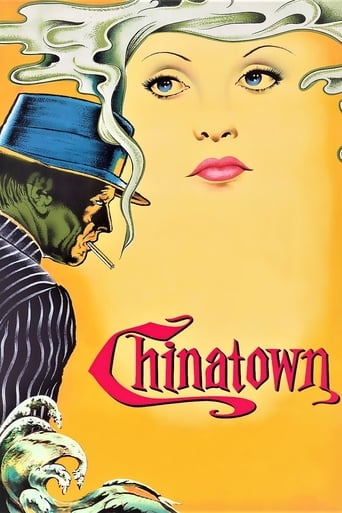Diary of a Chambermaid (1964)
Celestine has a new job as a chambermaid for the quirky M. Monteil, his wife and her father. When the father dies, Celestine decides to quit her job and leave, but when a young girl is raped and murdered, Celestine believes that the Monteils' groundskeeper, Joseph, is guilty, and stays on in order to prove it. She uses her sexuality and the promise of marriage to get Joseph to confess -- but things do not go as planned.
Watch Trailer
Cast


Similar titles
Reviews
Thanks for the memories!
Excellent but underrated film
The film may be flawed, but its message is not.
Through painfully honest and emotional moments, the movie becomes irresistibly relatable
Diary of a Chambermaid opened the later French period of Luis Bunuel (1964-1977) during which he made his most well known films such as Belle de Jour, That Obscure Object of Desire and The Discreet Charm of the Bourgeoisie. Diary of a Chambermaid is another of his attacks on the bourgeoisie but what differs it from the rest is its genuine darkness and pessimism. It's a film about fight of the classes, fascism and a satire of the decay of the French society.Set in early 1930's; a new chambermaid, Céléstine (Jeanne Moreau) arrives to the Monteil mansion. Soon she gets to know the bizarre family full of odd characters; Madame Monteil who seems to be more interested in taking care of their family's furniture than her husband, Monsier Monteil who isn't interested in anything but hunting and Madame's father who is a shoe-fetishist.Céléstine is in between of two worlds; the city and the country, the working class and the bourgeoisie. She's not settled in; so she's not part of the country nor the city as she isn't part of the bourgeoisie or the working class. She doesn't really know where she is, she's a very elusive figure; so she is in the move all the time. Each time the camera let's us observe her, she's in the move. But when Céléstine climbs up the ladder of the social hierarchy she stops. She lies in her bed and commands people around her; the snow outside indicates this age of stagnation she has now entered.Diary of a Chambermaid is based on the novel by Octave Mirbeau which was first adapted on screen by Jean Renoir in 1946. The first word of the title 'diary' refers to the protagonist of the story and in the novel everything is seen from Céléstine's perspective - and no thoughts of her can escape from us. But Luis Bunuel didn't want to focus on one perspective, he wanted to show the perspective of Céléstine but also of the strange people living in the mansion.Bunuel's film portrays life in a swamp. He has transformed the bourgeoisie settings, he grew up in Spain, to France brilliantly. Swamp, of course, indicates a state of life; when you're in a swamp there is no way out. You are stuck and cannot move. This refers to the pessimism of Diary of a Chambermaid; there is no hope and the end shows that Luis Bunuel portrays a humankind with no future; the similar storm and clouds in the end, as in the beginning. All the horrors will happen again and again.Diary of a Chambermaid is a film of antitheses. The city and the country, the bourgeoisie and the lower class - as mentioned, woods and the mansion, house animals and the wild animals. The two latter couples refer to the dichotomy of the film. The house symbolizes civilization where people are frigid and mellow, even the animals are under control. On the contrary, the woods symbolize the wild side of man where one's desires and passions run wild, where rules and standards are cut off and, where the rabbits, wild boars and snails are out of control.It's a very clever film - attack on the bourgeoisie, a common subject for Bunuel but he was never as cruel, ruthless and pessimist about it as in Diary of a Chambermaid. Rapes, hypocrisy and disregard are the main elements which characterize the atmosphere of this film portraying a swampy world.
This movie is presented as "pitiless, devastating" etc, but really it is just an exercise in artistic snobbery - the characters are either two-dimensional - the gentry, who are simply symbols of lust, jealousy, or avariciousness, or one-dimensional - the servants, who are either victims or heartless. This movie is like an Ivy Compton-Burnett novel: Everyone is a caricature, who gets what she/he deserves, but what's the point? If you like stick-figures who are arrogantly set up to be knocked down, then this is the movie for you. If you like to explore humanity in all its complexity, then skip this shoddy theater piece. The only good thing is the French is clear and easy to follow, so helpful to those studying the language.
Luis Buñuel's stunning film stars Jeanne Moreau & Georges Géret in a clever battle of wills. Moreau is the new chambermaid of an estate lorded over by a kinky aristocrat (with a shoe fetish) and his remarkably uptight (and very materialistic) daughter, played to the hilt by Françoise Lugagne. The daughter's husband (Michel Piccoli) is a wannabe Casanova who's impregnated some of the past help. Added to the mix is political radical Géret, who may or may not be a child killer. Buñuel really peels back a rotten onion here, with the sexy and free-spirited Moreau slowly realizing that she's in a madhouse. The director has seldom been so straightforward in his indictments. Here he takes aim at the bourgeoisie, the French government, and of course religion (one of the townspeople is quick to finger a couple of monks as murder suspects). It's a scathing film but also filled with many comic touches: Moreau's show of boredom at her at employer's fetish; the constant battle between Piccoli and blustery neighbor Daniel Ivernel; Lugagne's hen pecking nagging of Moreau NOT to break anything. It's superbly acted by all, with Moreau giving what is really an Oscar worthy performance. In addition to the great work by Laugagne, Géret is perfect as the radical/bully and Piccoli adds a lot playing against type as a real nitwit. The film's co-writer Jean-Claude Carrière plays a befuddled priest.
In the 30's, the witty, literate and quite sophisticated chambermaid Céléstine (Jeanne Moreau) comes from Paris to work for the dysfunctional Monteil family in the country, more specifically for the fetishist on shoes and maniac for cleaning Monsieur Rabour (Jean Ozenne). His daughter and mistress of the house Madame Monteil (Françoise Lugagne) is a frigid and arrogant woman, and her husband, Monsieur Monteil (Michel Piccoli), is a hunter and also a wolf with their maids. Their fascist and rude worker Joseph (Georges Géret) feels a sexual attraction for Céléstine, but she repels him. Their neighbor, Captain Mauger (Daniel Ivernel), has a problem with the Monteils and dumps his garbage in their yard, but Céléstine talks to him and is motive of gossips. When Monsieur Rabour unexpectedly dies, Céléstine quits her job but while in the train station, she finds that the girl Claire was found raped and murdered by the police. Céléstine returns to her job convinced that Joseph killed the little girl and trying to find evidences against him."Le Journal d'une Femme de Chambre" is a delightful movie of undefined genre drama, black comedy, adventure? where Luis Buñuel again exposes fight of classes, hypocrisy of both the bourgeois and the working class, a historical moment in France with the fascism growing, the ridiculous role of the clerical and an unsolved murder case. The story is centered in Céléstine, but the motives why a woman with her profile accepts a job in a rural area is never clear. The identity of the rapist and killer of Claire is also not disclosed, there is only a strong insinuation that Joseph killed the girl. The story is very ironic, like for example when Monsieur Monteil is informed that Céléstine and Joseph will marry and requires the sexual favors from Marianne; or the weird fetishism of Monsieur Rabour; or the priest asking for a new roof for the church to Madame Monteil; or the conclusion with Captain Mauger changing his will and serving the mistress and smart Céléstine on their bed. My vote is seven.Title (Brazil): "O Diário de uma Camareira" ("The Diary of a Chambermaid")

